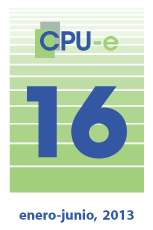Resumen
El autor discute el papel del concepto de género en antropología lingü.stica, desde el surgimiento de esta disciplina hasta nuestros días, lo que implica pasar, sucesivamente, de una función más bien clasificatoria con relación a un acervo de textos, a una postura teórica y crítica impulsada de manera conjunta por la etnociencia, el estructuralismo, la etnografía del hablar y las aportaciones de Bakhtin. Las perspectivas actuales conciben al género como un marco convencionalizado que orienta la producción y recepción del discurso, ya que la asimilación de un texto o emisión particular a un determinado género conlleva un conjunto de expectativas respecto a su despliegue ulterior, ejerciendo impacto tanto en sus propiedades textuales (cohesión, coherencia, etc.), como en sus correlatos temáticos y pragmáticos. Dada la importancia de los factores situacionales y extrasituacionales que interactúan con las estructuras y rasgos formales del género, así como de la ideología y la política del género, éste puede cambiar y reconfigurarse, o bien mantenerse apegado a su organización convencional (ortodoxia genérica). El autor discute también la posibilidad de que un texto particular pueda asimilarse a más de un marco genérico y bajo qué circunstancias.
Abstract
The author discusses the role of the concept of genre in Linguistic Anthropology, since the inception of this field to current approaches, which means a step from meeting a rather classificatory need to deal with texts, to a growing theoretical and critical attention. This change was jointly encouraged by ethnoscience, structuralism, and ethnography of speaking, as well as by Bakhtin’s perspective of genre. Current approaches conceive genre as a conventionalized orienting framework for the production and reception of discourse. The assimilation of a text or utterance to a particular genre carries with it a set of expectations concerning the further unfolding of the discourse, with consequences on its textual properties (cohesion, coherence, etc.), and on its thematic and pragmatic correlates. Given the relevance of situational and extrasituational factors that interact with the formal structures and features of genre, and of the ideology and policies of genre, changes and reconfigurations can take place, as well as generic orthodoxy. The possibility that a particular text can be assimilated to more than one generic framework, and under which circumstances, is also discussed.
Recibido: 12 de octubre de 2011
Aceptado: 23 de enero de 2012

